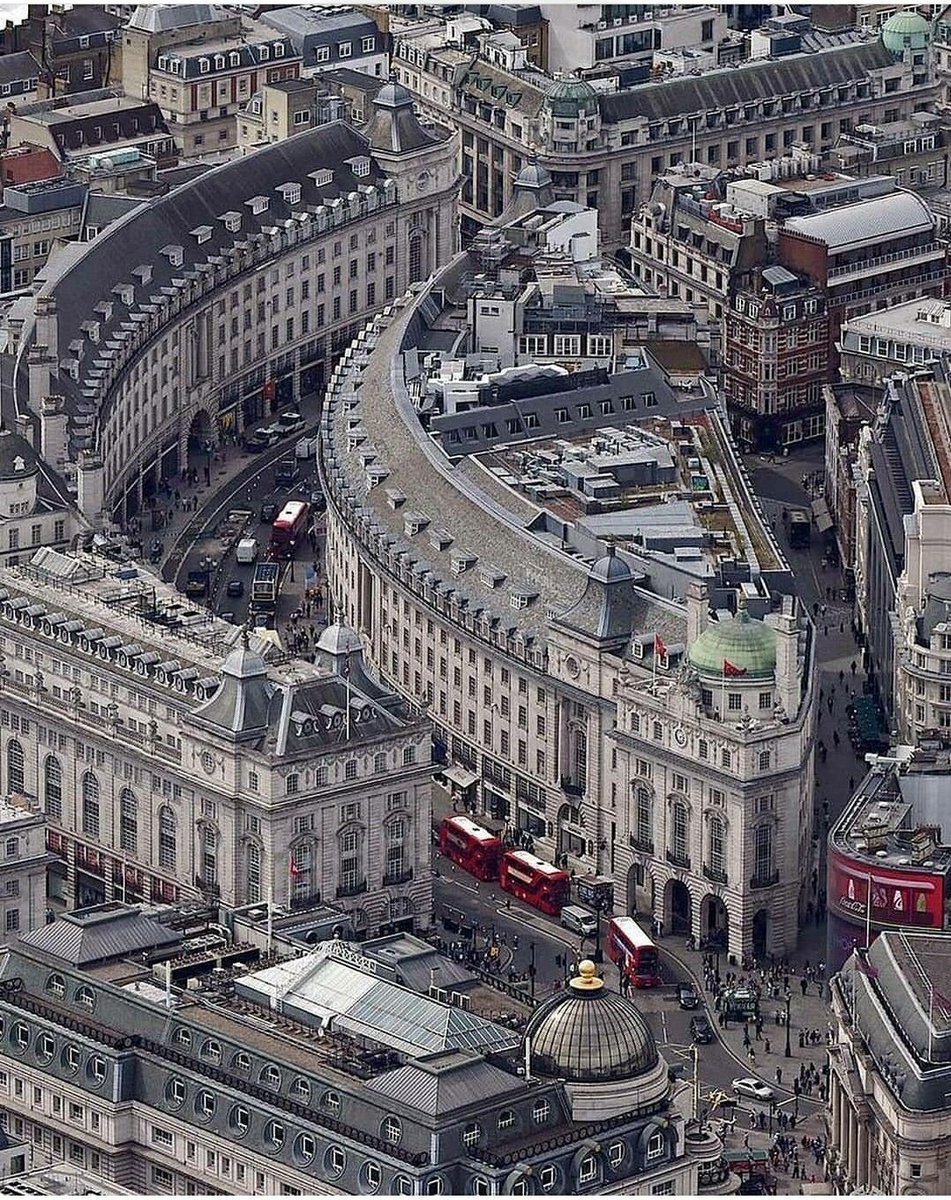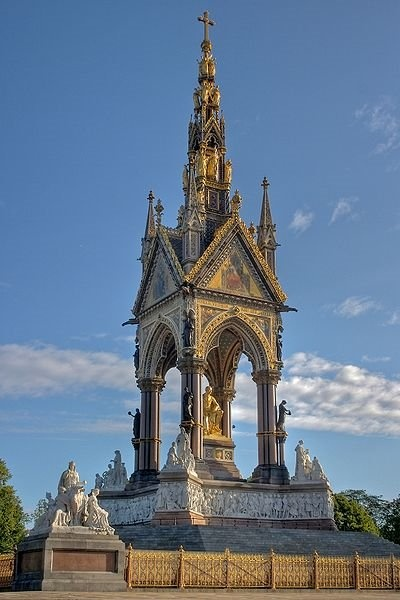9/11 didn’t just collapse towers, it collapsed belief.
In Institutions and In purpose.
24 years later, what’s rising in its place isn’t chaos.
It’s something more seductive and far more dangerous. 👇
In Institutions and In purpose.
24 years later, what’s rising in its place isn’t chaos.
It’s something more seductive and far more dangerous. 👇

Historians William Strauss and Neil Howe called it The Saeculum — a four-phase cycle of human history:
• The High
• The Awakening
• The Unraveling
• The Crisis
We are now deep inside the last one. The Crisis.
• The High
• The Awakening
• The Unraveling
• The Crisis
We are now deep inside the last one. The Crisis.

Every few generations, society hits a Fourth Turning, a total crisis that tears through its myths and rebuilds from the ashes.
• Revolution
• Civil war
• Depression
• Global war
Each cycle ends the same way: something must be reborn.
• Revolution
• Civil war
• Depression
• Global war
Each cycle ends the same way: something must be reborn.

Our Fourth Turning began in 2008.
And since then, it hasn’t let up:
• The global economy nearly collapsed
• Institutions have lost all moral authority
• Technology outpaced the law
• Culture splintered into digital tribes
• War, plague, AI — none of it feels shocking anymore
We are in the void.



And since then, it hasn’t let up:
• The global economy nearly collapsed
• Institutions have lost all moral authority
• Technology outpaced the law
• Culture splintered into digital tribes
• War, plague, AI — none of it feels shocking anymore
We are in the void.
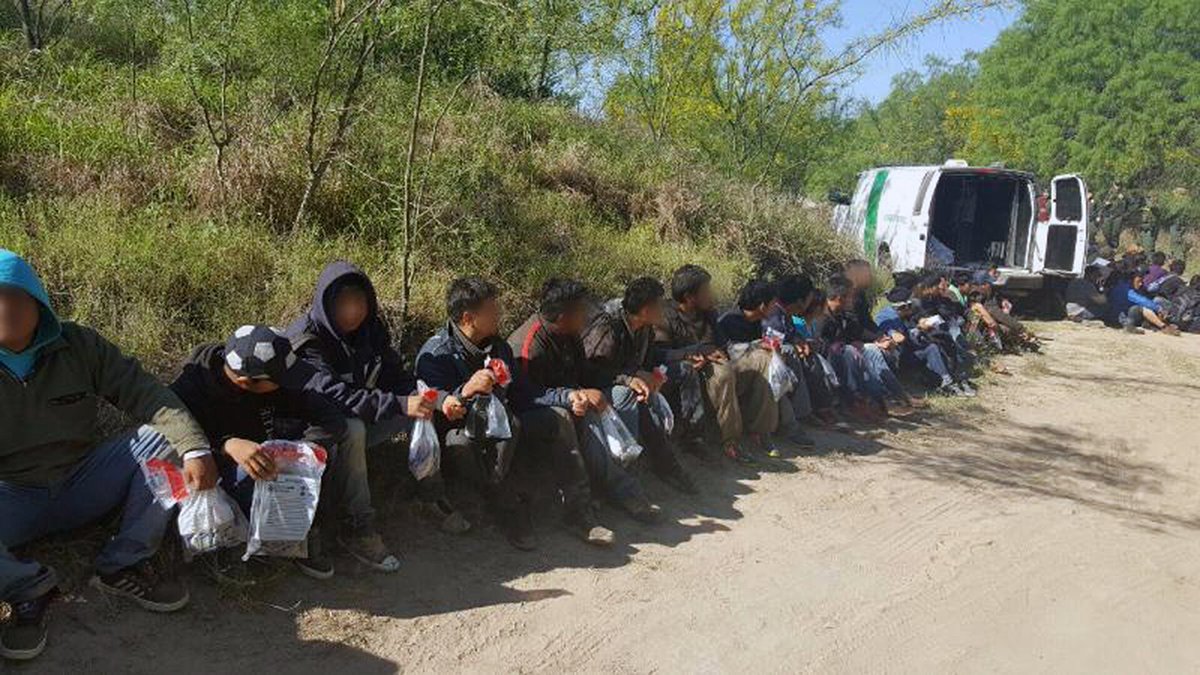

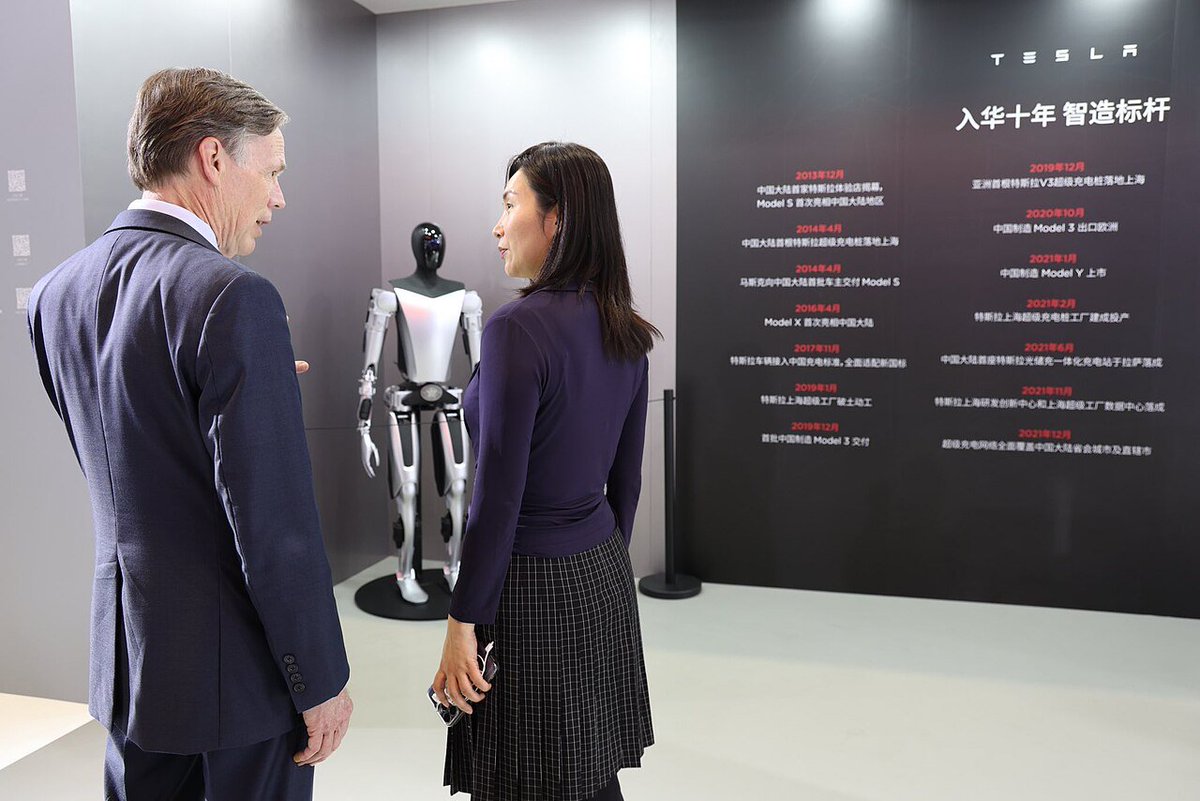
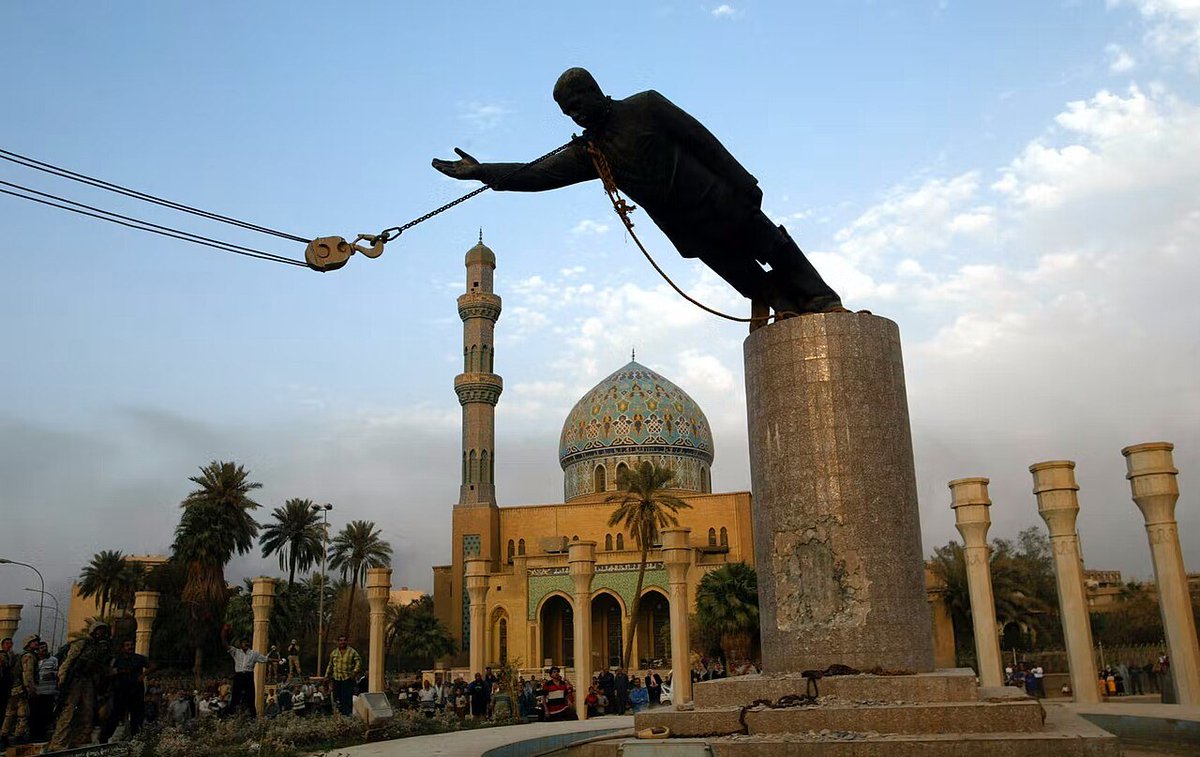
And the most important question isn’t what’s falling.
It’s:
What fills the vacuum when an old order dies?
History gives us five brutal answers.
It’s:
What fills the vacuum when an old order dies?
History gives us five brutal answers.
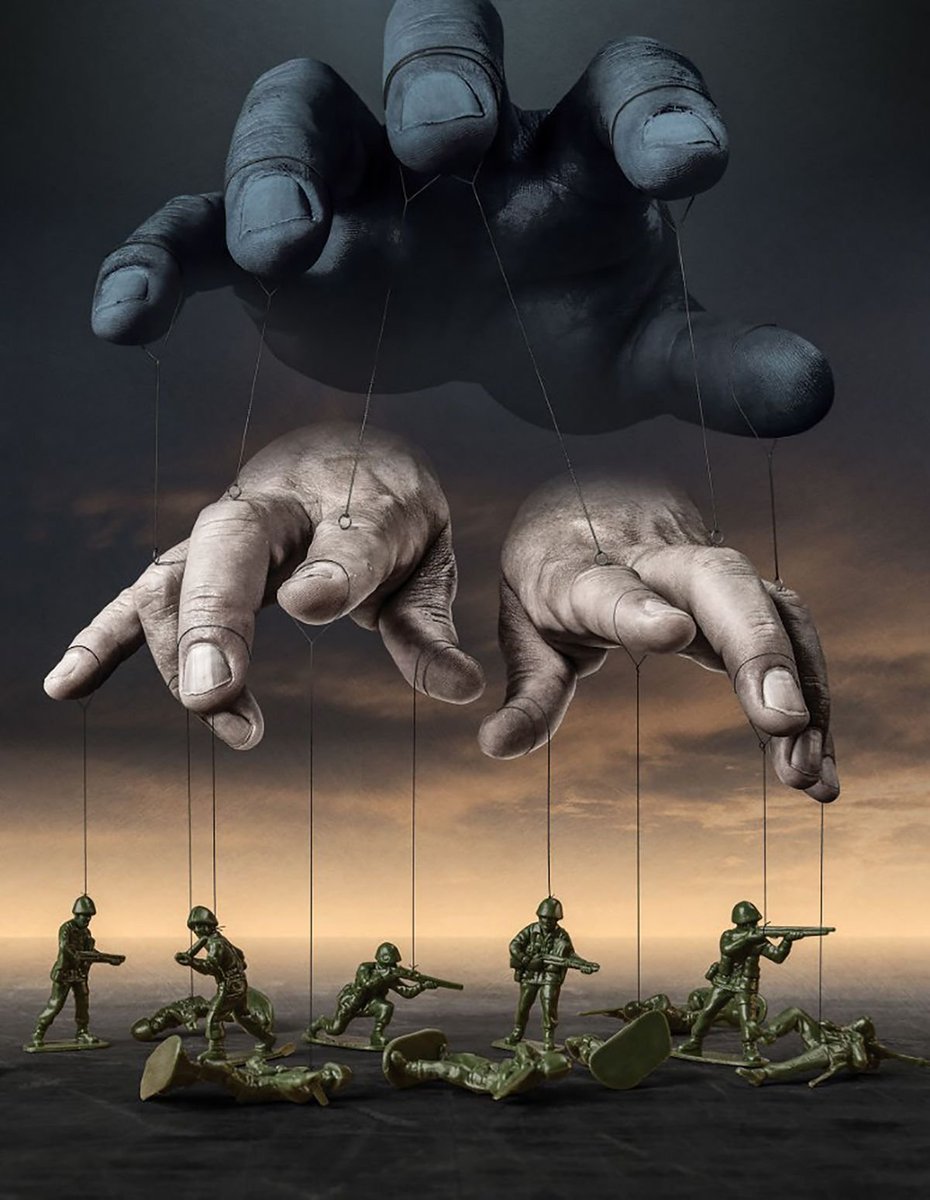
Case 1 — Rome
Republic collapses → Caesar rises
The Senate was paralyzed. Corruption was rampant. The people were tired of elite infighting.
Julius Caesar didn’t offer reform.
He offered glory, order, and revenge.
And that was enough.
The Republic never returned.
Republic collapses → Caesar rises
The Senate was paralyzed. Corruption was rampant. The people were tired of elite infighting.
Julius Caesar didn’t offer reform.
He offered glory, order, and revenge.
And that was enough.
The Republic never returned.
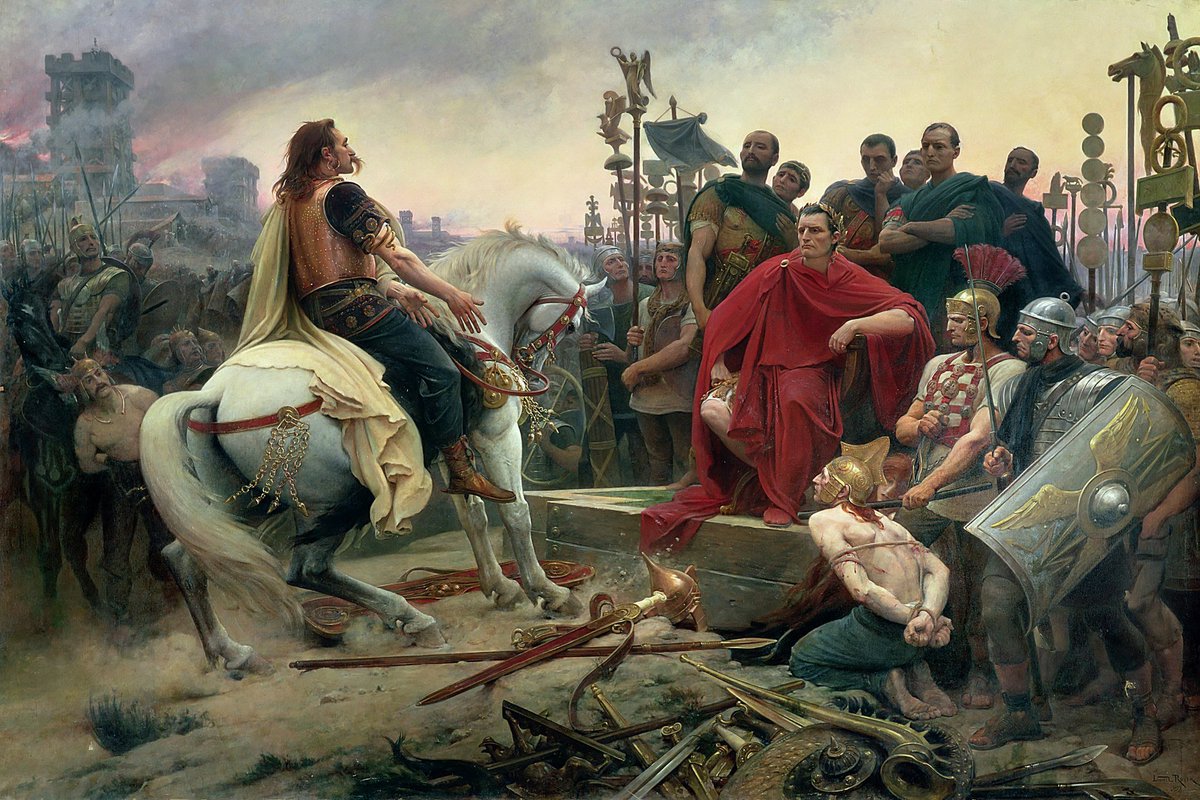
Case 2 — Weimar Germany
Democracy collapses → Myth takes over
Hyperinflation. Shame from Versailles. German identity in ruins.
Hitler offered a story:
You are the chosen.
They are the threat.
I am the savior.
And the people embraced it because it gave their pain a purpose.
Democracy collapses → Myth takes over
Hyperinflation. Shame from Versailles. German identity in ruins.
Hitler offered a story:
You are the chosen.
They are the threat.
I am the savior.
And the people embraced it because it gave their pain a purpose.
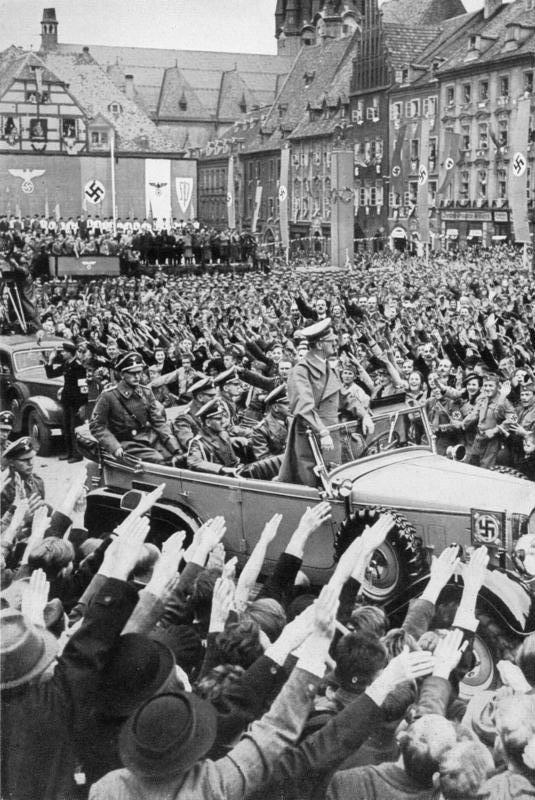
Case 3 — Soviet Union
Empire dissolves → Strongman restores
The USSR fell overnight.
Chaos followed.
Enter Putin. He didn’t bring freedom. He brought stability, tradition, and imperial memory.
People traded democracy for dignity.
And never looked back.
Empire dissolves → Strongman restores
The USSR fell overnight.
Chaos followed.
Enter Putin. He didn’t bring freedom. He brought stability, tradition, and imperial memory.
People traded democracy for dignity.
And never looked back.
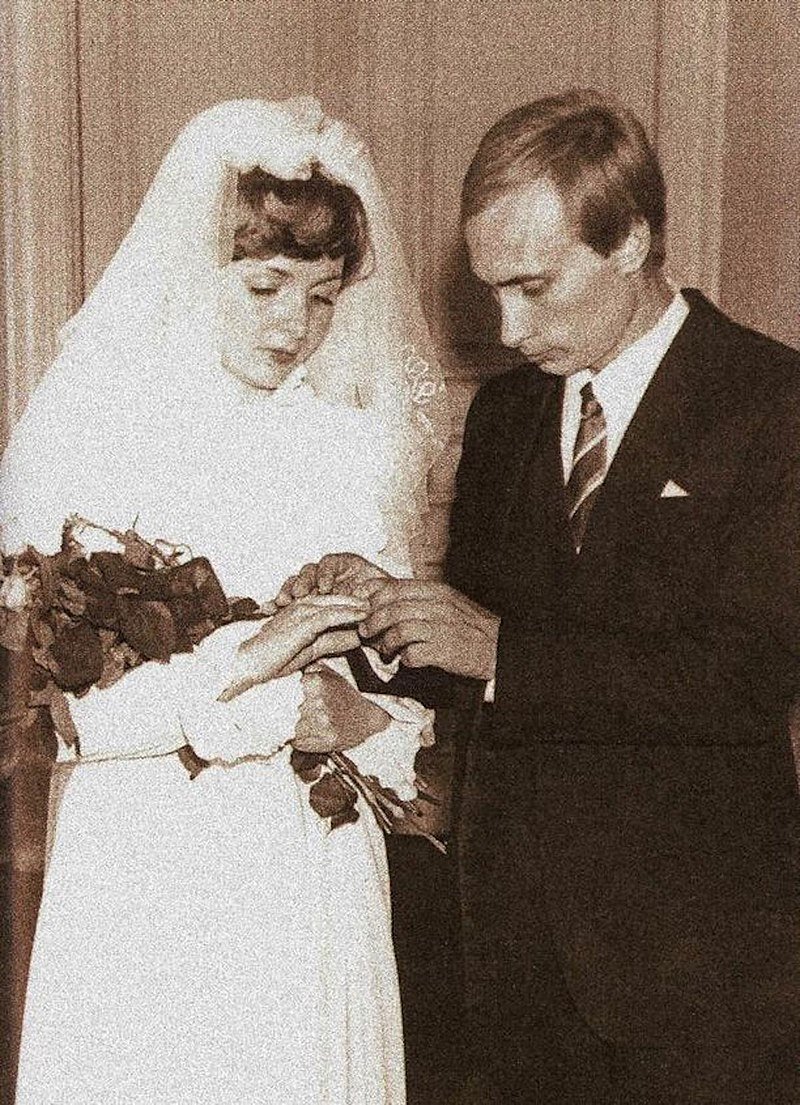
Case 4 — France, 1789
Monarchy collapses → Terror, then Empire
The king fell. Liberty was declared.
But the vacuum wasn’t filled by reason.
It was filled by mobs, guillotines, and finally Napoleon.
Revolutions don’t stop at reform.
They search for a crown.
Monarchy collapses → Terror, then Empire
The king fell. Liberty was declared.
But the vacuum wasn’t filled by reason.
It was filled by mobs, guillotines, and finally Napoleon.
Revolutions don’t stop at reform.
They search for a crown.
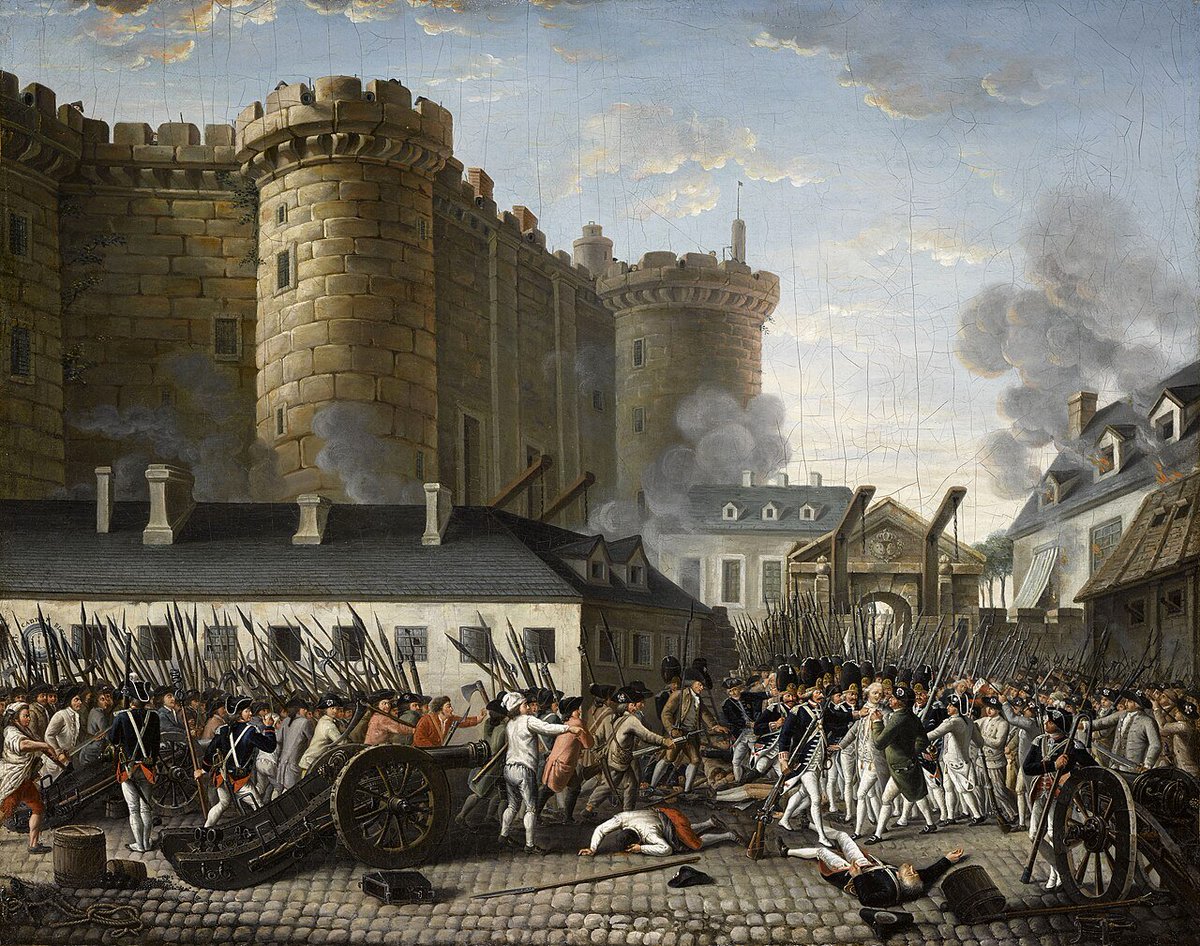
Case 5 — Bronze Age Collapse
Entire civilizations vanish → Tribal theocracies emerged
Between 1200–1000 BC, great empires (Mycenae, Hatti, Ugarit) fell within decades.
Out of that wreckage came a new kind of power:
Smaller, tighter, spiritual, and armed.
Israel. Phoenicia. Warrior-priest kingdoms.
Collapse was the womb of new civilizations.
Entire civilizations vanish → Tribal theocracies emerged
Between 1200–1000 BC, great empires (Mycenae, Hatti, Ugarit) fell within decades.
Out of that wreckage came a new kind of power:
Smaller, tighter, spiritual, and armed.
Israel. Phoenicia. Warrior-priest kingdoms.
Collapse was the womb of new civilizations.
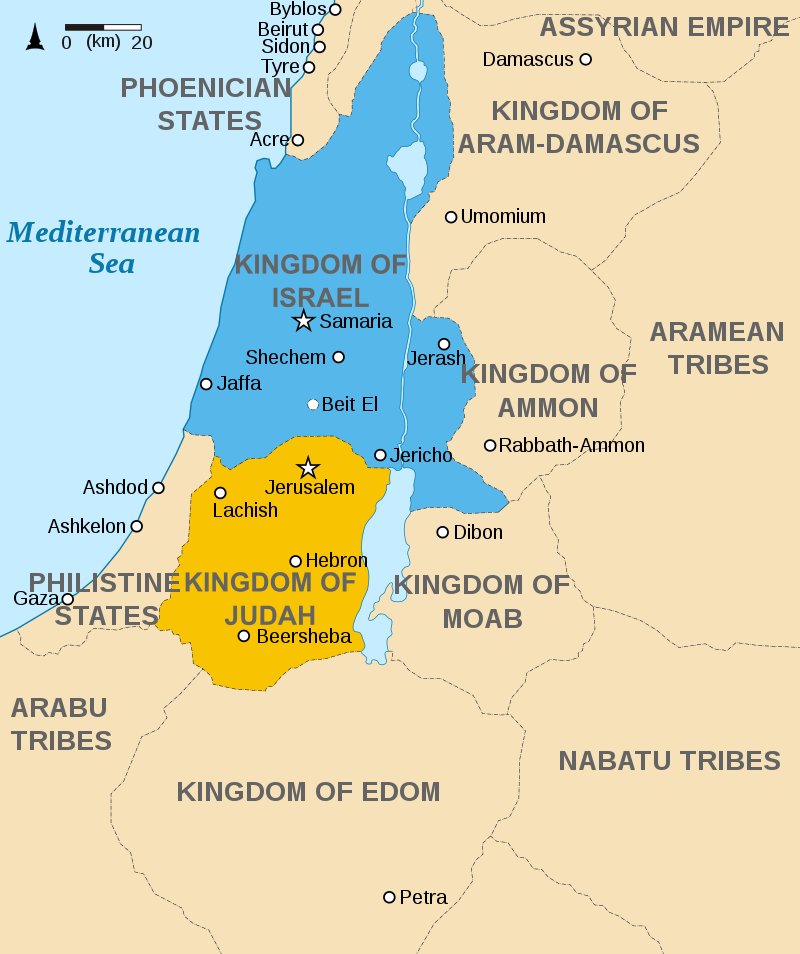
If you are enjoying this thread, it is just the surface. If you agree with it, share it with others and read the full article in my newsletter:
newsletter.thecultureexplorer.com/subscribe
newsletter.thecultureexplorer.com/subscribe
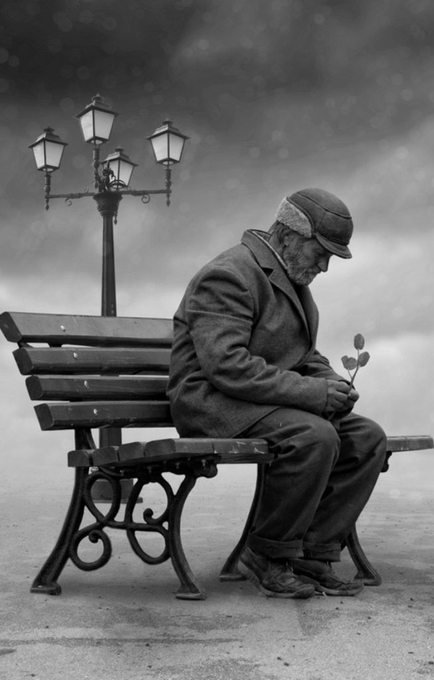
The pattern is brutal and clear.
When the old world fails, the new one doesn’t ask for votes.
It offers meaning.
Not the kind that comforts.
The kind that commands.
When the old world fails, the new one doesn’t ask for votes.
It offers meaning.
Not the kind that comforts.
The kind that commands.
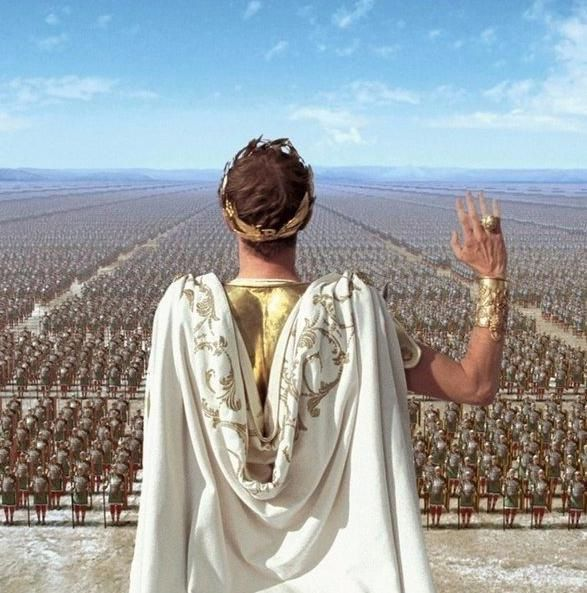
Look around in 2025:
• AI priests
• Apocalyptic climate movements
• Populist strongmen
• Nationalist revivals
• Digital theocracies
• Billionaire exit plans
These aren't fringe. They're forming belief systems. And people are choosing sides.



• AI priests
• Apocalyptic climate movements
• Populist strongmen
• Nationalist revivals
• Digital theocracies
• Billionaire exit plans
These aren't fringe. They're forming belief systems. And people are choosing sides.
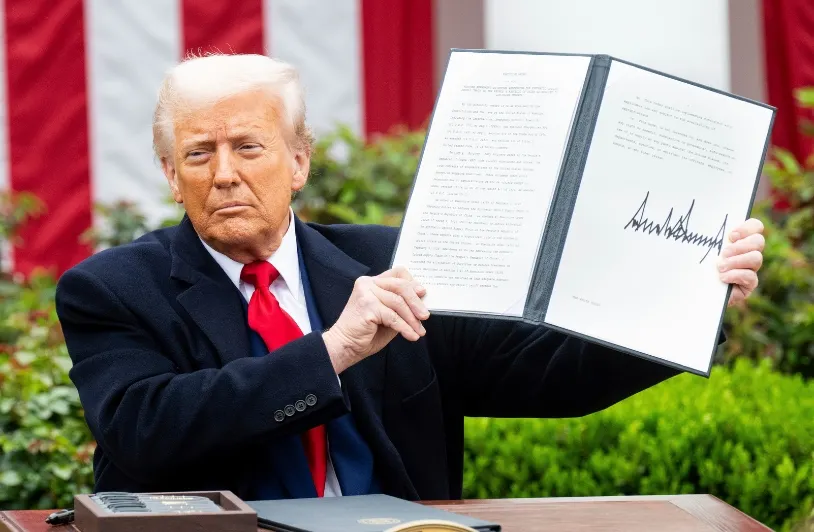

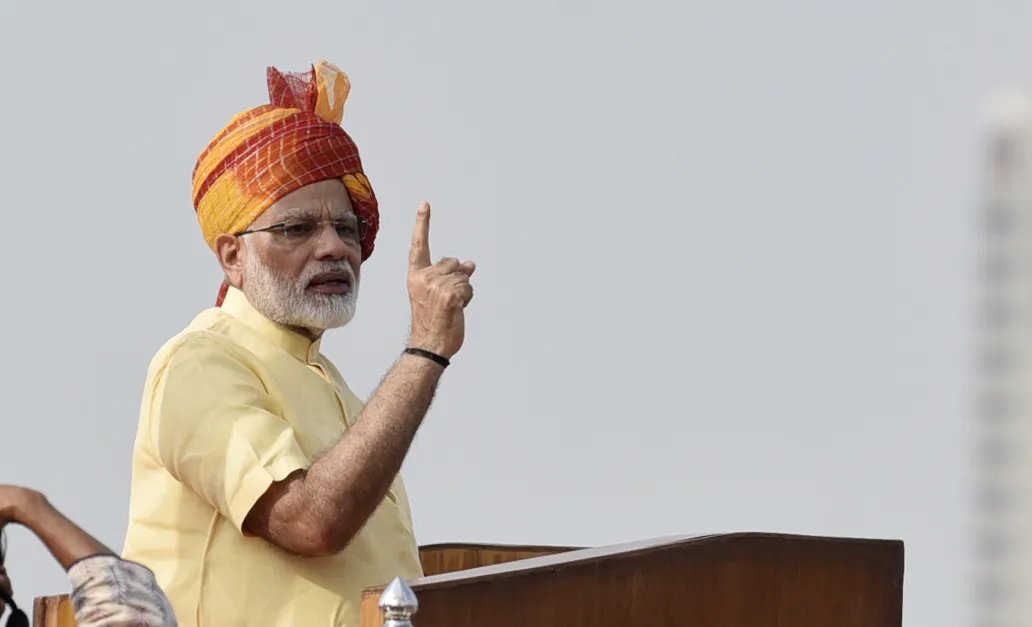

We thought freedom was inevitable.
It’s not.
Without a story, there’s no civilization.
Without sacrifice, there’s no identity.
And together they leave us without any purpose nor a future.
It’s not.
Without a story, there’s no civilization.
Without sacrifice, there’s no identity.
And together they leave us without any purpose nor a future.
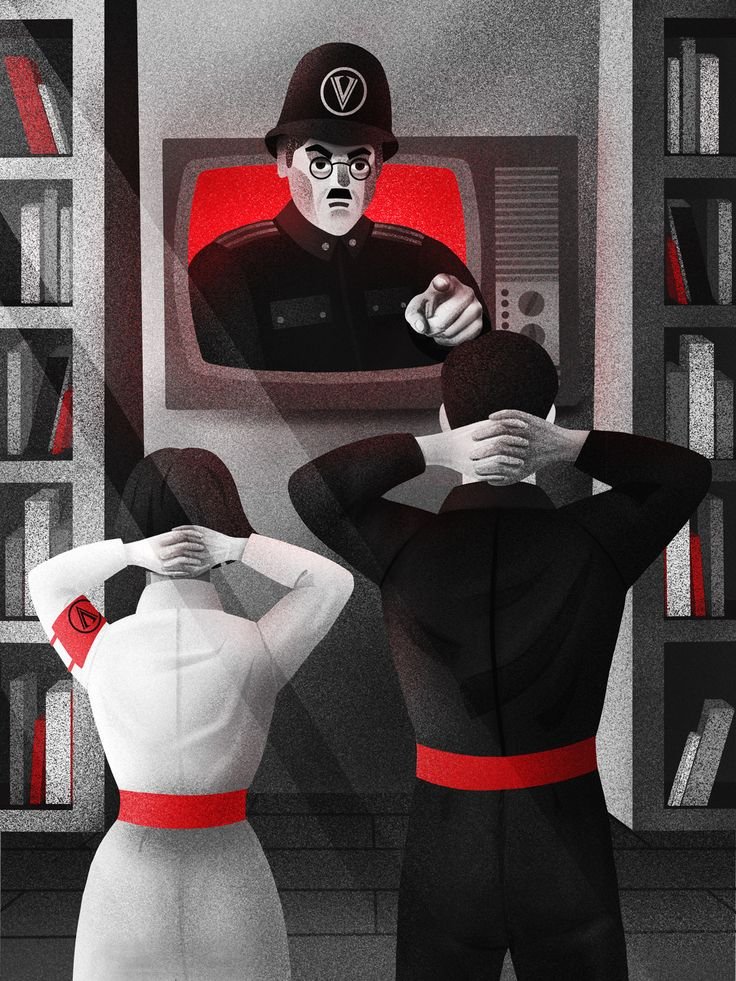
So, what fills the vacuum when an old order breaks down?
A myth and a mission.
And the will to see both through.
We’re in pre-replacement.
The only question is: Who will carry the burden of building what comes next?
A myth and a mission.
And the will to see both through.
We’re in pre-replacement.
The only question is: Who will carry the burden of building what comes next?

• • •
Missing some Tweet in this thread? You can try to
force a refresh



